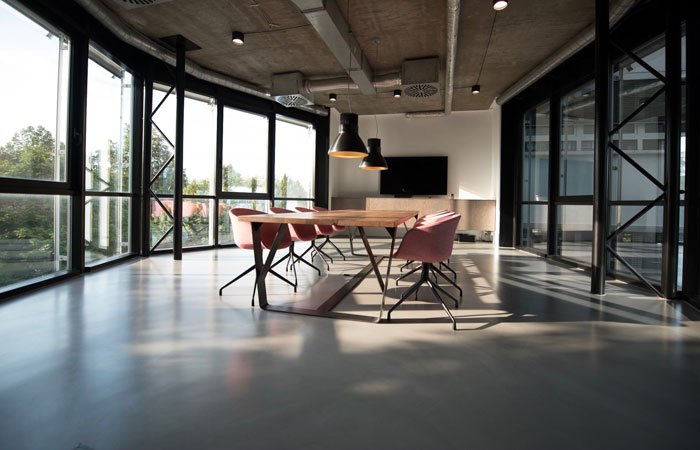For a long time, the role of a property manager was largely seen as someone who kept the lights on, made sure repairs were done, and dealt with the occasional tenant query. It was a reactive job, built around maintenance and day-to-day fixes. But the world of commercial property is changing fast, and so too is the way these spaces are managed. Across the UK, property management is no longer about just keeping buildings in order; it has become a strategic profession that shapes the value, reputation, and success of commercial estates.
This transformation has not happened overnight. It has grown out of wider changes in the way businesses work, how people use office and retail spaces, and the pressures facing landlords and investors. Commercial property management today is about creating places that not only run smoothly but also attract tenants, encourage growth, and support long-term financial stability.

The Shift From Reactive to Proactive
Traditionally, commercial property management was reactive. A tenant would call about a broken air conditioning unit, a leaking roof, or an issue with utilities, and the manager’s role was to resolve the issue. While maintenance is still part of the job, the real focus now is on being proactive—preventing problems before they happen and aligning property management with long-term business goals.
Managers today look at how buildings can operate more efficiently, how energy costs can be controlled, and how the property can adapt to changing needs. This means analysing patterns of use, monitoring tenant feedback, and adopting systems that make buildings more resilient. By taking a proactive approach, managers not only reduce costs but also build stronger relationships with tenants who feel supported and valued.
Commercial Property as a Strategic Asset
What has really driven this change is the recognition that property is no longer just a physical space; it’s a strategic asset. For many companies, their buildings say a lot about their identity, culture, and future plans. A well-managed property can attract high-quality tenants, increase rental value, and stabilise an uncertain market.
In the UK, especially in cities where demand for commercial space is high, strategic management can make the difference between a property standing empty or being fully occupied. Managers are expected to advise on market trends, tenant mix, and even the layout of spaces to ensure the property meets the demands of modern businesses. This makes their role far more influential than it used to be.
Sustainability and Energy Efficiency
One of the biggest changes shaping property management is the push towards sustainability. With increasing regulations on energy use and emissions, landlords and investors can no longer afford to ignore environmental performance. Tenants, too, are more conscious of their carbon footprint and prefer buildings that align with greener values.
Modern commercial property management involves examining energy consumption, identifying areas for efficiency, and planning how to future-proof buildings against new regulations. This may include installing energy-efficient lighting and heating systems, adopting renewable technologies, or using smart monitoring tools that track usage in real time. Sustainability is not just a legal obligation; it has become part of the strategy for attracting tenants and boosting a building’s market value.
Technology as a Game-Changer
Technology has become a central part of this transformation. In the past, much of property management involved manual paperwork, endless phone calls, and slow processes. Today, digital systems make it possible to manage everything from tenant communication to maintenance scheduling in one place.
Smart building technology goes even further. Sensors can track occupancy, measure air quality, and flag issues before they become problems. Tenants benefit from smoother experiences, while landlords benefit from reduced costs and better data for decision-making. In the UK, where the commercial property market is competitive, technology is often the factor that sets a managed property apart from the rest.
The Importance of Tenant Experience
Another area where property management has evolved is in its focus on tenant experience. In the past, landlords provided a space and tenants made do with what they had. Today, businesses expect more: flexible layouts, modern amenities, and responsive management.
Commercial property managers now consider community as much as maintenance. Whether it’s an office block, retail centre, or mixed-use development, the goal is to create a space where businesses want to stay for the long term. This could mean offering better common areas, introducing digital communication platforms for tenants, or organising regular updates to ensure transparency.
When tenants feel looked after, they are more likely to renew leases and even recommend the property to others. That loyalty translates into stability for landlords and higher value for investors.
Adapting to Market Pressures
The UK property market has faced its share of pressures, from economic shifts to changing working habits. The rise of remote and hybrid working has had a direct impact on office space, forcing managers to rethink how buildings are used. Retail, too, has faced challenges with the growth of online shopping, making shopping centres and high streets harder to manage.
In this environment, commercial property management is about more than simply keeping buildings open. It requires flexibility and creativity. Some managers are repurposing office space for co-working, while others are helping landlords reposition retail sites for new uses. Adaptability has become one of the defining skills of the modern property manager.
The Future of Commercial Property Management
Looking ahead, the role of commercial property management in the UK will continue to grow in importance. With ongoing economic uncertainty, rising energy costs, and increasing demand for sustainable buildings, property managers must balance immediate needs with long-term vision.
The job is no longer about reacting to problems; it is about planning for success. From managing sustainability targets to integrating technology and keeping tenants happy, the profession has become one of strategy, foresight, and innovation.
This transformation is good news for landlords, investors, and businesses alike. Commercial property is no longer just a place to work or trade; it is a carefully managed environment that supports growth and resilience.
Conclusion
Commercial property management in the UK has come a long way from its maintenance-heavy past. What was once a role focused on repairs and quick fixes is now a strategic profession that balances sustainability, technology, tenant experience, and financial performance.
By transforming the way properties are managed, professionals in this field are not only keeping buildings running but also shaping the future of the commercial landscape. The shift from maintenance to strategy is more than a change in job description—it is a sign of how vital commercial property management has become in driving long-term success.





